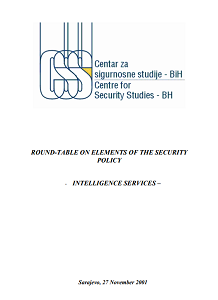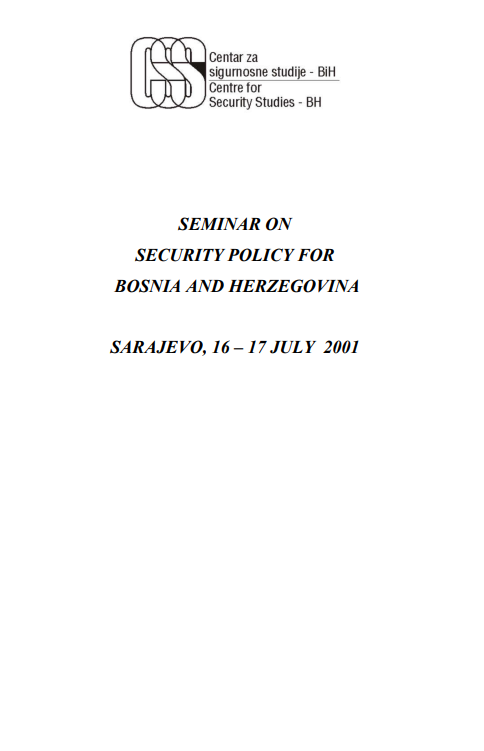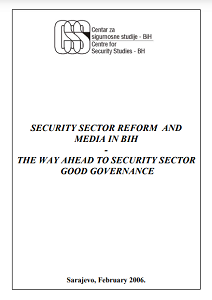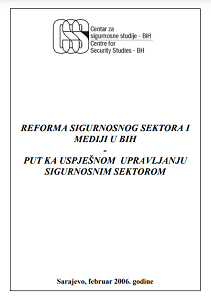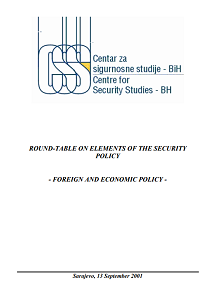
Round-Table on Elements of the Security Policy - Foreign and Economic Policy -
Round-Table on Elements of the Security Policy - Foreign and Economic Policy -
Keywords: international relations; foreign policy; BiH; security; roundtable;
Today’s round-table is a continuation of the work on the project of a state-level security policy for Bosnia and Herzegovina. The Centre for Security Studies wishes to give its own contribution to the development of this important theme, considering that there exists no country that can afford to be without a security policy. In considering that the time has come for Bosnia and Herzegovina when there needs to be an open discussion, the Centre for Security Studies has decided, through a seminar an a couple of round-tables, to initiate an open and structured discussion, which would contribute through an exchange of views, to approach and discover responses to the security threats that we and the world in which we live is currently faced with. The day before yesterday, we were witness to one of the security problems that has arisen and from which nobody is safe, and that is terrorism. Unfortunately, terrorism is not somewhere very far away from us; it is a threat to us in this country as well. We naturally condemn it and express our sincere sympathies and condolences to the families of those who were killed. During the previous seminar, we spoke about the concept of security policy what is expected from such a document. What are the interests on which the security policy of Bosnia and Herzegovina needs to be based? What are the interests we wish to defend or promote? What are the priorities? What are the objectives that need to be created in the short and long term? The security policy of Bosnia and Herzegovina needs to protect the citizens, peoples and state from foreign and internal threats of any kind, taking into consideration the level of security and level of guarantees that the global Euro-Atlantic and European security system can provide. During our last seminar, among other items we spoke about the aims of Bosnian integration into the Euro-Atlantic and European security environment, taking into account the risk factors that current jeopardise the security of this country. Considering that only mutual arrangements of the citizens and peoples of this country can achieve lasting results, to point to their real interests, the Centre for Security Studies decided to hold a round-table in September, October and November – to endeavour to discuss the founding elements of the security policy about which we have agreed.
More...
